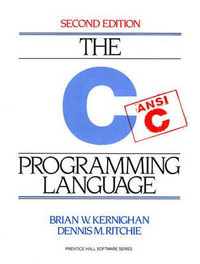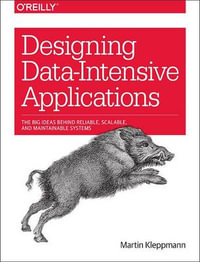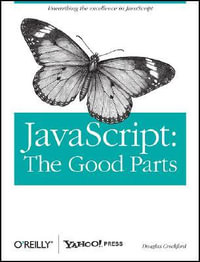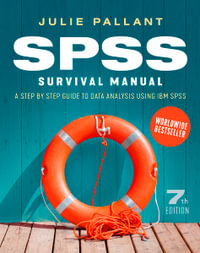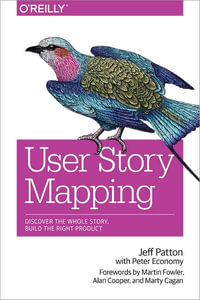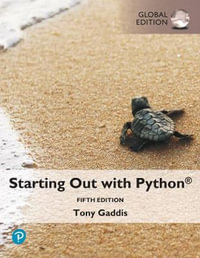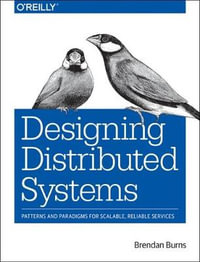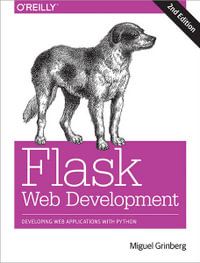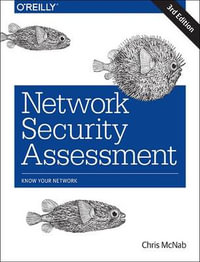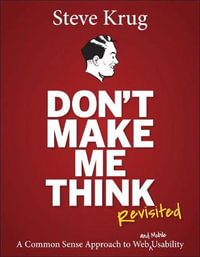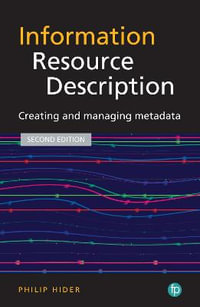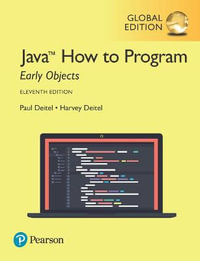
Introduction to Software Testing
2nd Edition
By: Paul Ammann, Jeff Offutt
Hardcover | 13 December 2016 | Edition Number 2
At a Glance
364 Pages
Revised
26.0 x 18.4 x 5.0
Hardcover
RRP $106.95
$82.75
23%OFF
or 4 interest-free payments of $20.69 with
orAbout the Author
Paul Ammann is Associate Professor of Software Engineering at George Mason University, Virginia, where he earned the Volgenau School of Engineering's Outstanding Teaching Award in 2007. He also led the development of the Applied Computer Science degree, and has served as Director of the MS Software Engineering program. He has taught courses in software testing, applied object-oriented theory, formal methods for software engineering, web software, and distributed software engineering.
Ammann has published more than eighty papers in software engineering, with an emphasis on software testing, security, dependability, and software engineering education. Jeff Offutt is Professor of Software Engineering at George Mason University, Virginia, where he leads the MS in Software Engineering program, teaches software engineering courses at all levels, and has developed new courses on several software engineering subjects. He was awarded the George Mason University Teaching Excellence Award, Teaching with Technology, in 2013.
Offutt has published more than 165 papers in areas such as model-based testing, criteria-based testing, test automaton, empirical software engineering, and software maintenance. He is Editor-in-Chief of the Journal of Software Testing, Verification and Reliability, helped found the IEEE International Conference on Software Testing, and is the founder of the Java project.
Industry Reviews
Review of the first edition: '... well written, logically organized, and provides excellent examples as well as useful course materials (such as homework assignments and quizzes) ... greatly facilitates the teaching and learning process. I plan to ... use the Ammann and Offutt text [again] ... students ... complimented the book in their student evaluations (a very rare occurrence) ... [it] provides an excellent high level as well as detailed presentation of topics that are often difficult for students to master, such as control flow graph coverage, data flow graph coverage (including all-defs, all-uses, all-du-paths criteria), graph coverage for use cases, logic coverage (predicate coverage, clause coverage) [and] syntax-based testing ... In particular, the logic coverage chapter took very complex concepts and made them understandable for the students. Also, the examples that appear in the book are very useful and are highly representative of what our students run into after they graduate and land jobs as developers and/or testers.' Jane Hayes, University of Kentucky
Review of the first edition: 'This software testing textbook creatively uses only four models to capture current software testing techniques helping students, researchers, and practitioners to deeply grasp these techniques from an abstract, systematic perspective. The textbook provides excellent balance between theory and practice!' Tao Xie, North Carolina State University
Review of the first edition: 'This is a great book for learning software testing. The clear terminology definitions and comprehensive examples provide an easy way to master the software testing techniques ... for people who work in or [are] prepar[ing] to enter the software testing field, this book is definitely what you need in your hand.' Ling Liu, ETH Zurich
Review of the first edition: 'Where has this book been all these years? [It] reminds me why I wanted to study software testing in graduate school: testing touches on all the interesting theoretical/engineering models/representations for software.' Arthur Reyes, University of Texas, Arlington
Review of the first edition: 'These two leading researchers provide an excellent exposition of the recent advancement of software testing in a manner that is suitable for classroom use. Theoretical concepts are covered rigorously and in practical contexts allowing students to build a solid foundation while being well-connected to the real applications. The abundant examples and exercises make both teaching and learning a more tangible task. In addition to classroom use, the balanced coverage of theory and application also makes the book a valuable addition to the practitioner's bookshelf.' Jeff Lei, University of Texas, Arlington
Review of the first edition: 'The authors logically break down the discussion into four key coverage criteria: graph-based, logic-based, syntax-based, and partition-based testing. They provide a solid theoretical presentation of software testing and test coverage criteria ... A concise but brief introduction to software testing.' R. S. Stansbury, Choice
'My favorite text book on software testing just became even better! I particularly like the new chapters on model-driven testing, JUnit, test plans and test oracles. As before it covers testing concepts and techniques that are important for students and practitioners alike. The new edition is still compact, the writing insightful and easily understandable. A must for any software engineering library.' Anneliese Amschler Andrews, University of Denver
'Software testing is one of the most important activities currently undertaken by our species, underpinning international security, social interaction, healthcare, transport, and economic well-being. No economic sector nor human activity remains untouched by software testing, yet it remains poorly understood, inefficient and often insufficiently effective, thereby requiring textbooks just such as this. This is an excellent introduction to software testing, covering principles, foundations, techniques and test management. It will be an invaluable book for practitioners, students and researchers alike. The authors, Paul Amman and Jeff Offutt, are both highly accomplished authors, and outstanding internationally-leading scholars, who have significantly advanced the field of software testing themselves, and are, therefore, well-placed to provide an introduction to this is critical field of science and engineering.' Mark Harman, Head of Software Systems Engineering, University College London
'This book manages to capture - in a concise, clear, and precise form - the most important concepts pertaining to software testing. This is the best introduction to the topic that is available, as it includes many theoretical and practical insights that will provide the readers with a solid foundation in the subject matter.' Lionel Briand, University of Luxembourg
'This software testing textbook creatively uses only four models to capture current software testing techniques helping students, researchers, and practitioners to deeply grasp these techniques from an abstract, systematic perspective. The textbook provides excellent balance between theory and practice! The 2nd edition includes valuable new contents to allow readers to learn these software testing techniques in common settings in industrial practices.' Tao Xie, University of Illinois, Urbana-Champaign
Preface
Part I. Foundations: 1. Why do we test software?
2. Model-driven test design
3. Test automation
4. Putting testing first
5. Criteria-based test design
Part II. Coverage Criteria: 6. Input space partitioning
7. Graph coverage
8. Logic coverage
9. Syntax-based testing
Part III. Testing in Practice: 10. Managing the test process
11. Writing test plans
12. Test implementation
13. Regression testing for evolving software
14. Writing effective test oracles
List of criteria.
ISBN: 9781107172012
ISBN-10: 1107172012
Published: 13th December 2016
Format: Hardcover
Language: English
Number of Pages: 364
Audience: Professional and Scholarly
Publisher: Cambridge University Press
Country of Publication: GB
Edition Number: 2
Edition Type: Revised
Dimensions (cm): 26.0 x 18.4 x 5.0
Weight (kg): 0.93
Shipping
| Standard Shipping | Express Shipping | |
|---|---|---|
| Metro postcodes: | $9.99 | $14.95 |
| Regional postcodes: | $9.99 | $14.95 |
| Rural postcodes: | $9.99 | $14.95 |
How to return your order
At Booktopia, we offer hassle-free returns in accordance with our returns policy. If you wish to return an item, please get in touch with Booktopia Customer Care.
Additional postage charges may be applicable.
Defective items
If there is a problem with any of the items received for your order then the Booktopia Customer Care team is ready to assist you.
For more info please visit our Help Centre.
You Can Find This Book In
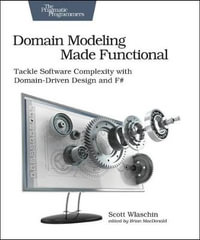
Domain Modeling Made Functional : Pragmatic Programmers
Tackle Software Complexity with Domain-Driven Design and F#
Paperback
RRP $91.25
$41.75
OFF
This product is categorised by
- Non-FictionComputing & I.T.Computer Programming & Software DevelopmentSoftware EngineeringSoftware Testing & Verification
- Non-FictionComputing & I.T.Computer Science
- Text BooksHigher Education & Vocational TextbooksComputing & Programming Higher Education Textbooks
- BargainsAcademia & Knowledge Bargains
